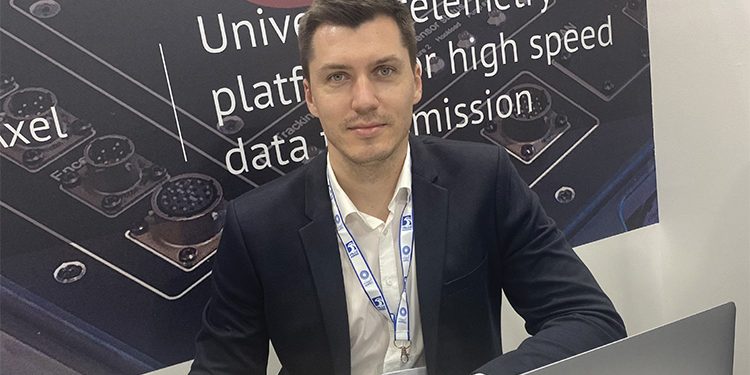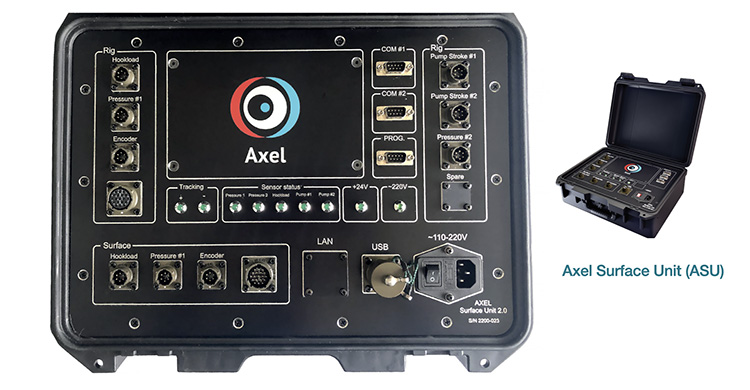Closure Interview: Boris Ivanov, Business Development Director, Axel
Could you introduce yourself to our readers?
I have been working in the oil and gas industry for more than 17 years now. In my career I have worked in the USA, Europe, UAE, Iraq, Ukraine and Russia. I was fortunate enough to gain experience in the international service companies, such as, Schlumberger, Weatherford, Halliburton, and the Austrian company TDE. For the past few years, I have managed to work in the operator’s side as well, in companies such as Gazprom Neft and Rosneft. So, I believe that some of your Russian readers will know me already. Recently I become the Director for Business Development at company Axel, who are a market leading telemetry supplier and who possess unique competencies and solutions for integrating downhole tools from different providers. I am sure, my broad range of experiences will be very useful for the dynamically developing company Axel both in Russia and abroad. For instance, in the Middle East, we are now experiencing a very high demand for our technological solutions.
The pandemic has caused significant challenges within the O&G sector – what changes have you had to make and what impact has the pandemic had on your business?
Clearly, the pandemic has had a strong impact on businesses right across the world, as well as in Russia. There has been a reduction in global oil demand with multiple, cost intensive, exploration and production projects having been shelved. Despite this, we have managed to keep our position in the telemetry market, as well as creating new technological solutions and we have conducted a series of successful pilot tests of our next generation equipment. The pandemic has also changed the formats of our interactions with our customers, we were used to this by now! We see each other less in person, all the meetings and negotiations have changed to online meetings, and it is no secret that personal relationships are critical for business in Russia, since everyone is used to resolving important issues face to face. Taken as a whole, the pandemic has not had very strong impact on Axel, since the specifics of our business is focused around information technologies and parts of our service is provided remotely.
What products do you offer and how long has the company been working in Russia?
Our main products are surface units Axel 2100 and Axel 2200 with unique software Axel Vision and Axel Decoder, and also downhole telemetry tools such as Axel Bridge, Axel Turbo and platform Axel InterConnect. Company Axel is providing technological solutions for telemetry since 2014. Sales geography is quite extensive – Iraq, USA, Kazakhstan, Indonesia, Turkey, Netherlands, UAE and of course Russia. Until now, Axel has been developing downhole devices and surface units, in accordance with worldwide standards, in the measurement while drilling (MWD) area. With our specific design engineering and operating specifications, as well as the predicted cost of the whole Axel telemetry system, allows us to acquire the significant part of the worldwide market for telemetry equipment.
Data transmission rates and data quality are key factors within MWD, LWD and steering operations. How does your system improve transfer rates and the data’s quality and quantity?
Yes, that’s all true, the data transfer rate and the quality of information, obtained in real time is very important for telemetry systems. Our maximum data transfer rate is 4.8 bit/sec, which is an absolute record for the telemetry equipment made in Russia. With such a high speed, we were able to transmit in real time an image of the density of 8 sectors and hydrogen content, three resistivity curves and one gamma-ray log. The combinations of algorithms applied in our device, Axel Turbo, makes it possible to not only increase the data transfer rate, using minimal power consumption, but it also ensures a high degree of surface data quality control. We are proud of the fact that our system transmits data severalfold faster than its analogues and it provides a user with the possibility to control the quality of the transmitted data. Besides, all our equipment is of universal use: its separate modules are compatible with the equipment of any of the third-party manufacturers. For oil service companies, this enables them to adopt a step-by-step modernization of their fleet, which is much more profitable for them economically.
How does Axel integrate other manufacturers’ tools into your telemetry system?
We have developed a unique modular platform called Axel InterConnect, for simpler integration and improved operation of the telemetry and logging equipment from various manufacturers.
Today, the data transmission rates, and the data quality received from a telemetry system, are the key factors for success while drilling oil and gas wells. Operators expect that any telemetry systems will transmit the broad range of geophysical parameters measured while drilling on a high speed and with a good quality. But most of the available telemetry systems fail to transmit all the required data due to their low transmission rates and their failure to connect and communicate with the additional downhole tools from the third-party manufacturers. They have outdated and poorly efficient algorithms which have been used for data transmission for many years now.
Axel’s InterConnect is the fastest and most optimal market solution for data transmission while drilling. Its universal and scalable architecture makes it possible to broaden the spectrum of data transmitted while drilling due to its ability to easily connect with third party downhole equipment.
Could you tell our readers about a recent success you have had?
One of the most significant achievements this year was the successful downhole trials incorporating a Russian “triple combo” assembly (resistivity, neutron and litho-density logging tool) and a rotary steerable system (RSS). Our company played a key role in the integration of these downhole tools from several different Russian manufacturers. The application of our technical solutions made it possible to operate the rotary steerable system and transmit the required data while drilling at a high-speed rate. I would like to congratulate the very professional and coordinated work of the specialists from LUKOIL-West Siberia, Kogalymneftegeophysica, company Energia, and DDS, who took part in this project. We were given a very ambitious task to integrate all the downhole equipment in a short period of time and organizing the data transmission on a high level. We managed to successfully complete that task, which, again, confirmed the professional level of Axel’s engineering team, as well as the reliability and efficiency of the Axel Bridge and Axel Turbo solutions.
Why was this project so special?
It was so special, because most of the drilling equipment was made in Russia. We successfully drilled a horizontal section, about 700 meters depth, with a litho-density azimuthal logging tool and RSS. Our achieved results during the trial confirmed the fact, that we are ready to replace hi-tech downhole tools for directional drilling, supplied mostly by Western companies. And what seemed an unreal possibility for us before, has now become a reality. Such results have been achieved due to the active policy of import substitution within the country during the latest few years, and due to our significant achievements in the downhole tools integration solutions.
What companies are you currently working with in Russia?
Our major clients in Russia are the directional drilling and geophysical service companies, such as, TNG-Group, Siberian Service Company, Kogalymneftegeophysica, Bashneftegeophysica, Petro Engineering and many others. In total, our technical solutions are well known in the telemetry and directional drilling market, and they self-promote when integrating different manufacturers equipment whilst increasing the quality and rate of the transmitted signal during drilling. At the moment, our equipment is undergoing downhole trials with Surgutneftegas and negotiations are taking place about a pilot project with one of Rosneft’s subsidiaries, which allows us in the nearest future to increase the presence on the Russian telemetry market.
After the US and EU sanctions hit Russia enabled a massive important substitution drive. How has this affected Axel?
Very positively. Import substitution policy has contributed to the development of Russian high-tech equipment for directional drilling and geophysics. Many Russian companies have received subsidies and grants from the state for various R&D projects. In Russia, companies began to produce logging tools with similar characteristics to foreign analogs. Also, Russian rotary-steerable systems began to be actively developed. Since Axel has unique competencies and experience in integrating this type of equipment, their appearance on the market will allow us to increase sales in Russia and enter those wells where only foreign companies of the Big Four (Schlumberger, Weatherford, Halliburton and Baker Hughes) previously worked. I want also to mention, that major oil and gas producing companies have also stimulate this development by providing their wells for pilot trials and giving priority for Russian service companies in tenders. Having worked for some years in Gazprom Neft, in a position of a Director for Import Substitution, I understand this topic very well and I have seen a major progress in this direction. Today everybody knows that this is just the beginning of import substitution process, which is now impossible to stop.
What does the next 5 years hold for Axel?
We shall continue to improve our equipment, both the downhole tools and the surface units, in accordance with the requirements and wishes of our key customers. Axel pays great attention to the innovative information technologies and invests into innovative pilot projects. We have already successfully introduced AI and BigData solutions for some of our tasks, and we are going to be busy with improvement these during the coming years. As for the business itself, we expect the increasing demand for directional drilling service in the Russian market, due to the appearance of a several numbers of Russian made rotary steerable systems, which we are ready to integrate with our telemetry and logging tools. We have already had a successful experience with similar integrations with foreign-made tools and we are looking forward to the launch of the Russia-made equipment whose technical characteristics are directly comparable to the foreign-made solutions. Now, we are negotiating to supply our equipment to Saudi Arabia and the UAE. We also have some pilot projects launched with our partners in the West Africa and China.
We see a great potential in the implementation of these projects which can lift the industry to a new level, and I believe that the interest to our technological solutions will only increase in the upcoming 5 years.




